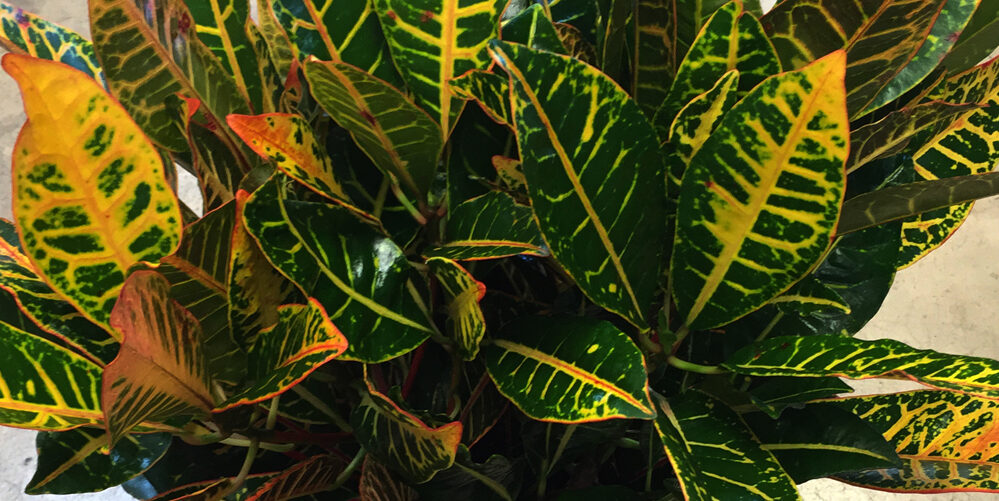Growing Croton

The croton, also called “garden croton,” is an easy-to-grow houseplant known for its variegated foliage covered in green, scarlet, orange, and yellow splotches. Here’s how to care for a croton in your home or garden. They are native to the tropical forests of southeast Asia and Oceania. In the wild, they grow as large shrubs, reaching up to 10 feet tall (in the home or garden, they stay a lot smaller).
Note: All parts of this plant are poisonous especially the seeds so it is not recommended for use in homes with curious pets or children. When damaged, croton produce a milky sap that can be irritating to the skin, too.
Planting
Planting Croton
- When choosing a container for your croton, keep in mind that the plant will grow upright, which eventually may cause it to become top heavy. Pick a container that won’t easily tip over when the croton gets larger.
- Use a well-draining potting mix. Croton like to be kept moist, but not wet.
- In areas with warm, humid summers, croton can be grown outdoors as a unique and colorful landscape plant. They work well in tropical-themed containers or alongside annuals in the ground. When temperatures drop to around 50°F (10°C), croton will need to be taken indoors.
Care
How to take care for croton
- Place it in a sunny location such as an eastern, southern, or western window. If it’s getting too little light, its newer leaves will be less colorful.
- Keep the soil evenly moist, but let it dry out between waterings.
- If humidity is low in your home, mist around the leaves with water once a week or keep a tray of wet gravel near the plant.
- Croton leaves are dust magnets. Gently wipe the leaves with a moist cloth twice a month to keep them clean and dust-free.
- Fertilize the plant in spring and summer.
- New plants can be started with 4 to 6 inch long stem cuttings. Remove the bottom leaves and place the cutting in a glass of water. After roots have formed, plant in a small pot.
- Repot the plant in the spring if it has grown too large for its current pot.
Pests/Diseases
Croton are usually pest and disease free, though they are susceptible to common houseplant pests such as mealybugs, spider mites, and scale insects.
Recommended Varieties
- ‘Petra’ is a popular cultivar. It has green leaves with red, orange, and yellow veins.
- ‘Gold Star’ has green leaves that are splashed with bright gold “stars.”
- ‘Eleanor Roosevelt’ has skinny leaves that range in color from burgundy to lime green. The leaves are mottled with bright yellow, as if they were spray painted.
- ‘Oakleaf’ has oak leaf–shaped dark green or bronze leaves with veins in yellow, orange, and red.
Website: www.almanac.com